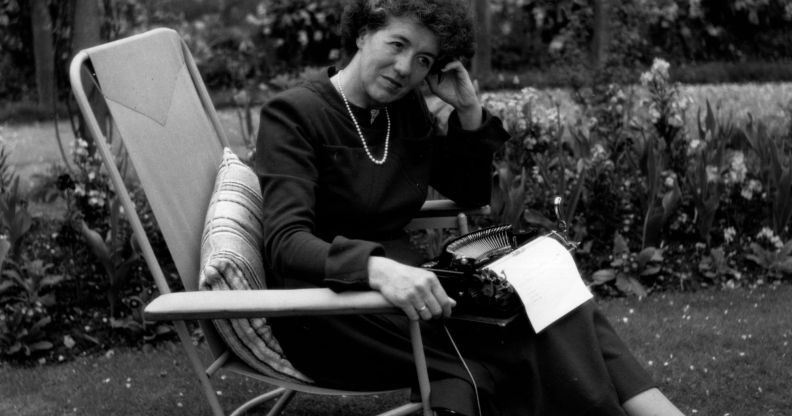Academic claims Enid Blyton had a lesbian affair with his grandmother

Academic claims in book that Enid Blyton had a lesbian affair with his grandmother (George Konig/Getty Images)
Academic claims in book that Enid Blyton had a lesbian affair with his grandmother (George Konig/Getty Images)
An academic has claimed in his latest book that children’s writer Enid Blyton had a lesbian affair with his grandmother, who worked as an illustrator on Blyton’s books.
Professor Nicholas Royle of the University of Sussex claimed he found out his grandmother, Lola Onslow, had an affair with the Famous Five author, and research had also found references to Blyton’s apparent bisexuality.
Royle explained in his new book David Bowie, Enid Blyton and the Sun Machine that his mother had told him about the pair’s affair when he was young, The Times reported.
“One day my mother said to me: ‘Your grandmother had an affair with Enid Blyton’,” Royle wrote. “Those were her words.”
Royle began to research Blyton, who died in 1968 at the age of 71, and had reportedly lived in London at the same time as Onslow.
“I was beguiled by the regularity with which I came across references to Enid Blyton’s bisexuality or to Blyton having had relationships with women,” Royle said.
“Normally it was without naming anybody… I did know at least one person who had a name and it was my grandmother.”
He explained that he had been told about the affair when he was young, but remembered the claims “in a very vivid way” when he was reading Blyton’s books to his children during Covid-19 lockdown.
Royle said: “I am almost blushing to be talking about it now because, when my mother said it, why didn’t I ask for more details?”
“I was in my twenties and I was an angry young man who wasn’t interested in the least in a dead grandmother I’d never met, or Enid Blyton. Looking back, when I think about it, I think how could I have let that just go like that?”
While claims have emerged that Enid Blyton had a lesbian affair during her lifetime, the children’s author has also previously been accused of having “racist, sexist, homophobic views”.
Plans to commemorate the author on a 50p coin in 2019 were reportedly blocked by Royal Mint due to “deep concern” that honouring her would “bring adverse reaction”.
Blyton’s stories were first criticised as racist by Lena Jeger in The Guardian in 1966, with the critic highlighting Blyton’s book The Little Black Doll. The story concerned a doll who was hated because he was black, until he is “washed clean” by the rain, and accepted.

